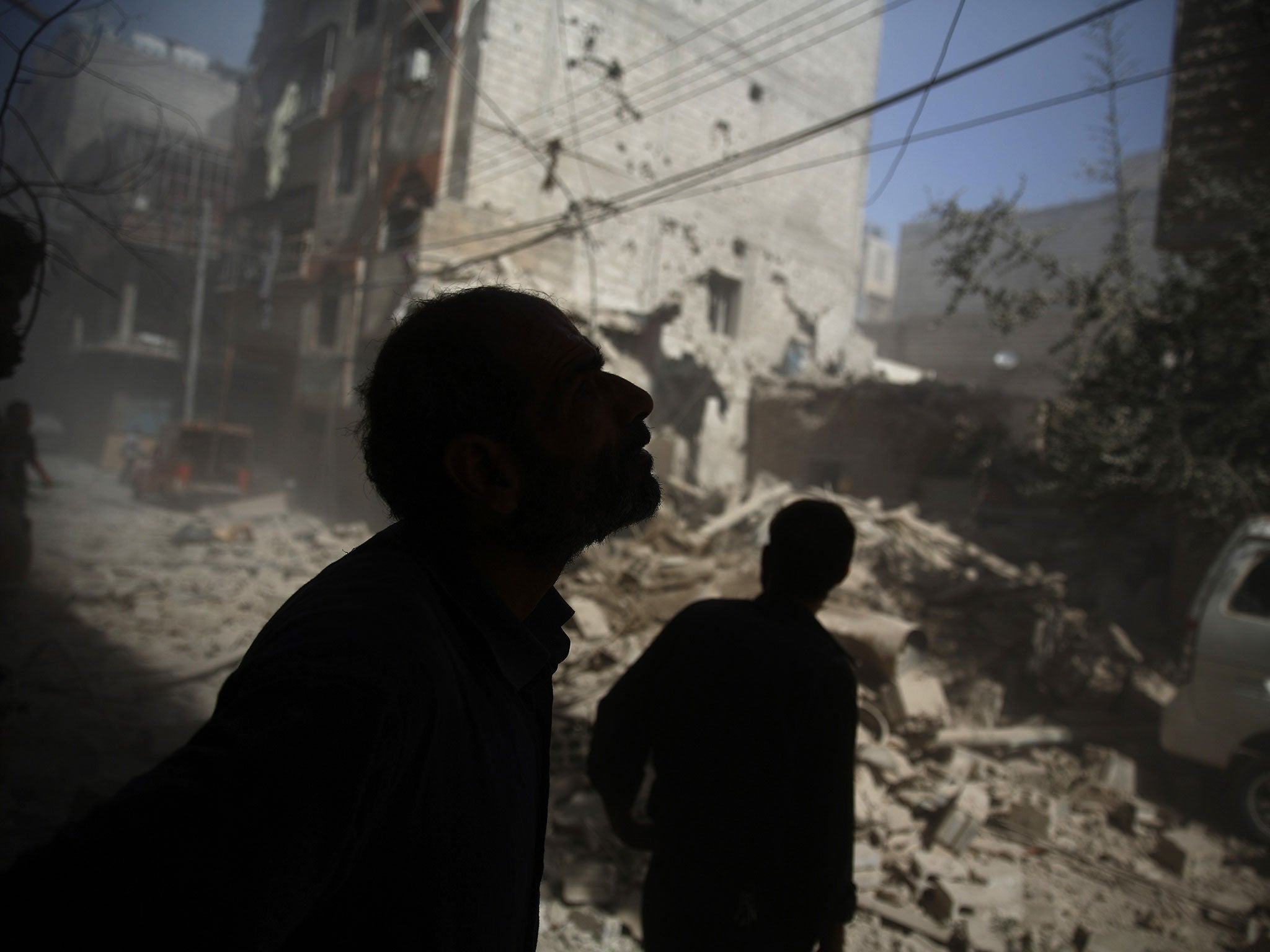The West's record on civilian casualties in Syria is comparatively good. It must stay that way
The pressure is on to "go after" Isis at whatever cost

There were – ahead of the Syria vote – two very different interpretations circulating as to what the involvement of British warplanes would mean for civilians in Raqqa and other Isis-dominated areas. Stop the War organisers mooted “thousands” of innocent deaths. The Prime Minister claimed that the RAF’s precision attacks over Iraq had not killed a single non-jihadi, and implied that course could be continued. It can be said with some certainty that neither of these claims is right. But one is considerably more right than the other, and David Cameron’s comments fall at least into the appropriate ballpark.
There are few good sources of information. What Cameron actually said was that there had been “no reports” of British strikes sending shrapnel into the stomach of a 12-year-old boy, or anything else of that sort. That does not mean we can be sure such things have not happened.
The RAF bases its reports on pictures taken from thousands of feet up. Isis has blocked internet use in much of the territory it controls, so – although it will attempt to magnify any coalition “errors” – news from the ground might not be spotted by the West. Working in between these two camps are the independent monitoring organisations, such as Airwars, that collate all reports, and judge them for accuracy. These are the places to turn for a “best guess”.
It is no apology for the estimated number of civilians killed by the coalition over 16 months in Iraq and Syria – which lies between 650 and 1,000, according to Airwars – to acknowledge that the British and American armed forces are abiding by the strictest rules of engagement in military history. A civilian casualty rate of between 6-8 per cent is “exceptionally low even by the standards of modern war”, says Shashank Joshi, a research fellow at the Royal United Services Institute think-tank. By contrast Airwars calculates that Russia’s strikes, often using indiscriminate bombs, kill bystanders at ten times the speed. The US’s restraint has been such that Pentagon officials routinely complain they are being hamstrung – while, as you might expect, Republican presidential candidates such as Ted Cruz promise to reverse the emphasis and start “carpet bombing”.
The pressure to up the ante is only likely to increase, as the war drags on. Following the Paris attacks, the US decided it would target oil trucks, even if doing so lowered standards of life for civilian populations in Isis-held areas (which could rebound against the West’s efforts to win over Sunni Muslim support). It may remain impossible to target “command and control” centres in Raqqa – as Cameron promised – because Isis holds prisoners in the football stadiums and government buildings it uses for such purposes. Any impulse to “go in harder” should be resisted, no matter what atrocities may follow.
If there were a grand strategic goal to which the air campaign was working, the “unfortunate” sacrifice of a larger proportion of innocent people might be justified in the name of the greater good. But there is not. The increased killing of children, teachers and truck drivers cannot be conscionably sanctioned for such ends. The West’s strikes are needed, but should remain as constrained as they are. If that means striking empty buildings, and three-quarters of flights returning to base without dropping any munitions, so be it.
Join our commenting forum
Join thought-provoking conversations, follow other Independent readers and see their replies
Comments
Bookmark popover
Removed from bookmarks